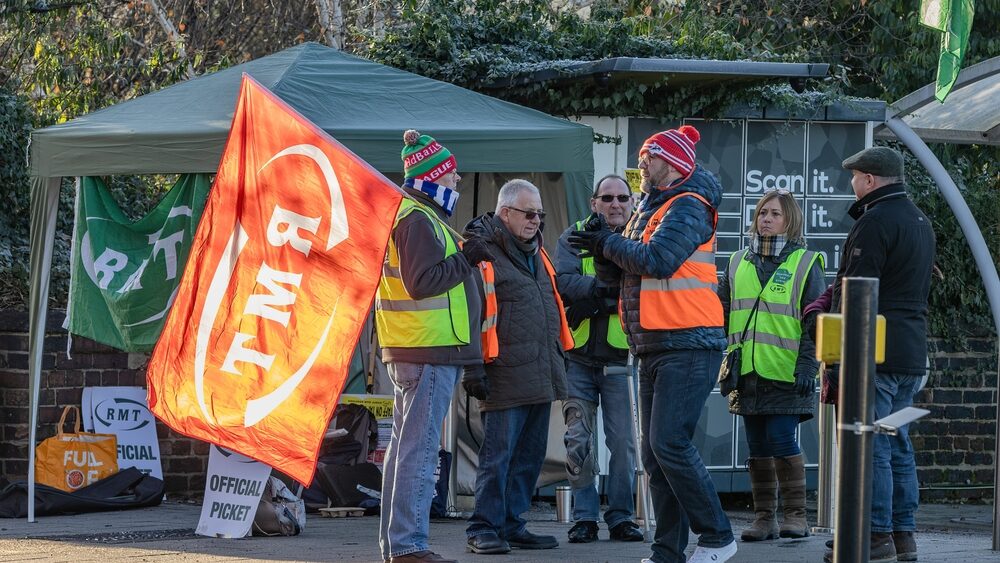In the fall of 2022, an act of Congress prevented an economy-shaking national rail worker strike. But what if the strike had happened? What would be the effect on specialty oil supply security?
It may seem pointless to dwell over what-ifs instead of simply wiping the sweat from our brows and moving on. History tells us otherwise.
This has happened before and could happen again in the future. So to ask “what if?” isn’t an idle mental exercise. It’s crisis planning.
Learning from Rail Strikes In U.S. History
On December 2nd, President Biden signed legislation blocking a strike of 115,000 rail workers that had been planned to begin on December 9th. It could hardly have been a closer call.
Many rail strikes in U.S. history have often been successful in achieving their immediate goal: to slow the economy enough to bring attention to worker demands.
- The 1992 railroad strike of CSX transportation workers only lasted two days yet cost the economy about $2.1B. That would be far more in today’s dollars.
- In 2005, New York Transit workers struck. The event, featuring two days of mass confusion and damage to pre-Christmas retail business, was like a microcosm of what a modern national rail strike could look like.
Specialty Oil Supply Security During a Modern Rail Strike
The Associated Press published a story in September 2022, when the possibility of a strike was already looming, about what might have been around the corner. It made several predictions:
- This time, the cost to the economy would be about $2B per day.
- Automakers would struggle to transport cars because truck capacity couldn’t replace rail.
- Shelves for various food items such as produce and meat could go bare.
- Passenger rail would be shut down, disrupting commutes in metropolitan areas like Chicago.
- Most importantly to our customers, shortages of oil and fuel supplies were likely.
During this time, we were in constant communication with our customers about what might happen and what we could do to prepare.
These were a few of the topics we discussed.
Trucks Can’t Fully Replace Rail
Some of our partners assumed we could plan to replace rail with transport by truck. If one railcar can carry four truckloads, it seems like all we need are more trucks.
The problem is that at scale, there simply aren’t enough trucks on the road to replace that much rail capacity. In the words of American Trucking Association President Chris Spear:
“[The trucking industry] has neither the equipment nor the manpower to replace a single day of lost freight service.”
Delays Are Inevitable
It stands to reason that if railcars were to be stopped mid-trip and/or workers strike mid-loading, a shortage of transport options means shipments would be significantly stalled.
Even if you had an on-demand fleet at your disposal to pick up loads, drivers are limited in ways that rail is not. They’re limited in how many hours they can be on the road per day, for example.
It’s also common for drivers to wait in line at terminals for hours at a time for the process of unloading, weighing, loading, and recording the laden weight. These delays would be far longer during a rail strike.
Shortages Are Probable
Even when suppliers like us maintain deep inventories as a best practice for specialty oil supply security, all suppliers will eventually get tapped out when our refinery partners are unable to access rail.
This means that our ability to process spot orders would eventually cease as our contract customers always take priority. Depending on how long the strike lasts, even contract customers may see availability shrink. Eventually, tanks would run dry.
That’s the bad news. The good news is, there are steps you can take to be in the best possible position in this scenario.
How to Prepare
Though some had specific needs we worked hard to attend to, what we told all customers worried about the strike was:
- Give us much more lead time with orders. This may seem obvious, but timing is always challenging. Place orders earlier than you think you need to.
- We are altering our approach in preparation for the crisis. This includes several strategies, such as:
- Building up our already deep inventories in advance of the strike.
- Loading railcars as early as possible to complete shipments before rail lines shut down.
- Using barges at our water access terminals as an alternative to rail.
- Become a contract customer. Move to the front of the line! Our logistics team can modify an existing contract schedule but may not always be able to accommodate spot orders under crisis conditions.
These tactics and more could have made a difficult situation a bit more manageable, and they will if and when the threat of a national rail strike comes again.
Maximize Your Specialty Oil Supply Security with Signal Fluid Solutions
We pride ourselves in being a premier specialty oil supplier for logistics excellence and supply security, especially in times of crisis.
The Signal Fluid Solutions team applies 40 years of experience to solve critical problems for our customers in the face of natural disasters, political unrest, economic crises, and more.
And the rest of the time, we simply excel at providing timely, convenient, dependable service, every day.
Find out how we can help you stay ahead of the game. Schedule a consultation now.




